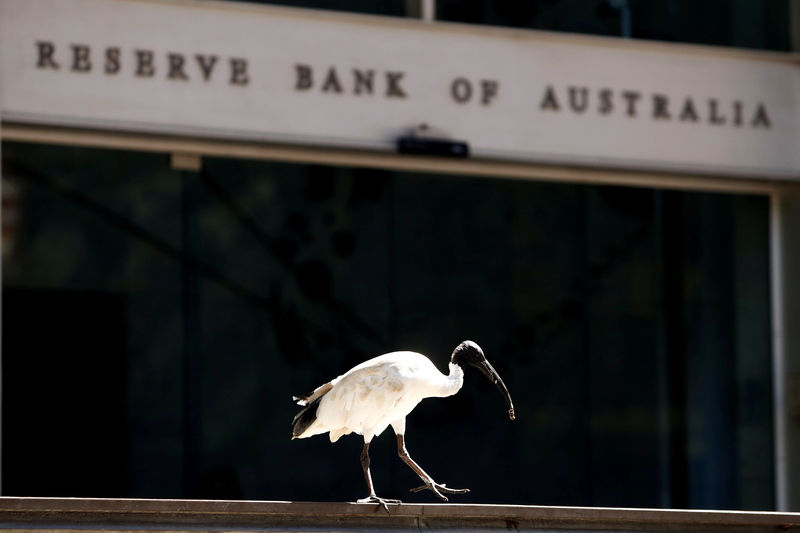TSX runs higher on rate cut expectations
Investing.com--The Reserve Bank of Australia (RBA) is expected to begin cutting interest rates as early as February, analysts at ANZ and Westpac said, pointing to cooling inflation as the key trigger for a policy shift.
ANZ analysts said that a sharper-than-expected slowdown in inflation would provide the RBA with enough confidence to lower the cash rate by 25 basis points at its next meeting.
The RBA’s next policy meeting is scheduled for February 17-18, with market attention firmly on whether the central bank will act on these inflation trends.
Trimmed mean inflation, the central bank’s preferred measure, fell to 3.2% year-on-year in the fourth quarter of 2024, below the RBA’s forecast of 3.4%.
“The six-month annualised rate of trimmed mean inflation decreased to 2.7%, close to the middle of the RBA’s target band,” said Catherine Birch, senior economist at ANZ. Quarterly services inflation of 0.7% was the lowest since mid-2022, showing signs that domestic price pressures are easing, she added.
Westpac economists also revised their outlook, bringing forward their expected timing for the first RBA rate cut to February from May. They also cited the better-than-expected inflation data as tipping the balance in favor of an earlier move.
“In addition to the trimmed mean outcome, we see encouraging signs in housing-related inflation suggesting that the momentum in domestic price pressures is fading a bit faster than the RBA feared,” Westpac Chief Economist Lucy Eliis wrote.
“The Board will now have the required confidence to start the rate-cutting phase.”
Westpac noted that while Australia’s labor market remained resilient, with unemployment at 4%—lower than the RBA’s November forecast of 4.3%—this was outweighed by cooling inflation and a slowdown in domestic demand growth.
Both banks cautioned that the RBA would remain data-dependent beyond the initial cut. Westpac expects further reductions in May, August, and November, bringing the terminal cash rate to 3.35% by year-end.
